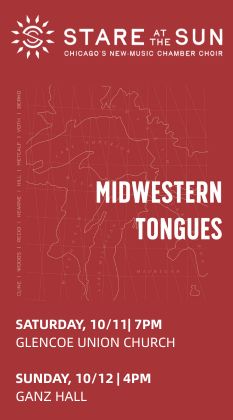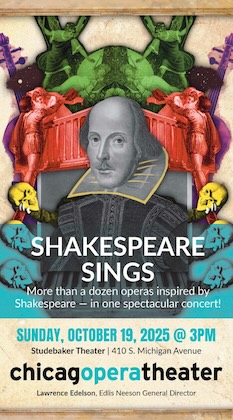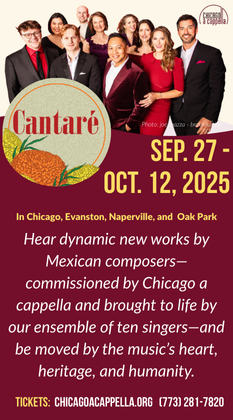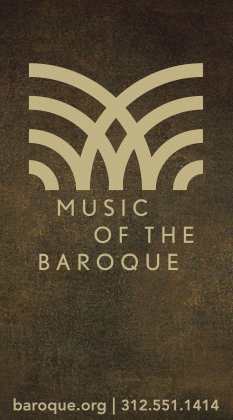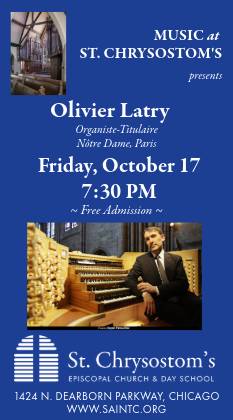Compelling gifts in small packages make for rewarding MusicNOW night
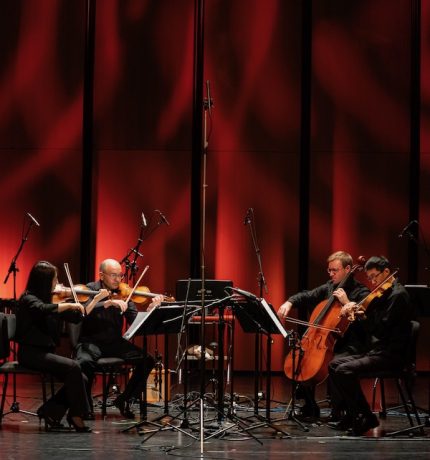
Missy Mazzoli’s sophomore year as curator of the MusicNOW series began with an eclectic lineup in October. This season’s second concert in the Chicago Symphony Orchestra’s new music series took place Monday night at the Harris Theater.
There was a somewhat bite-size quality to this post-Thanksgiving program, with all five works on tap running ten minutes or less. One couldn’t avoid the feeling that the pre-performance composer interviews were more extended than usual to pad out the program.
Still, Mazzoli, the CSO’s Mead composer in residence, once again corralled a varied array of music—all written within the past five years—with several composers new to local audiences.
It’s a much greater challenge for a composer to make a strong impression in a few minutes than in a half-hour. Yet the five featured composers—all of whom were in attendance to introduce their works—displayed strong individuality even in works of such relative brevity. Indeed, Monday’s concert proved one of the most rewarding MusicNOW events of recent seasons.
David T. Little is enjoying increasing renown of late as an opera composer. His dystopian Dog Days was performed at Northwestern last month and Chicago Opera Theater will present Little’s Soldier Songs in May.
Little’s obscure clues and shiny objects—which led off the evening and gave the concert its title —provides a different side of his art. Scored for solo violin in three movements totaling just five minutes, obscure clues reflects the composer’s rock drummer origins, with motoric riffs, pitch bending, and swooping phrases. The final section (“orwellian erasure”) was especially effective, pleading high notes alternating with bursts of frantic, driving syncopation. A false start to the finale apart, Yuan-Qing Yu delivered incisive and polished advocacy for Little’s compelling micro-sonata.
Nearly as concise was Emma O’ Halloran’s Vertical Fields. The Irish composer’s electronics background is evident in this acoustic trio for piano, violin and cello. A resonant piano chord ushers in a seesawing violin motif, and the composer subtly varies her minimalist surging style in a concentrated eight minutes. Violinist Baird Dodge, cellist Calum Cook and pianist Jacob Greenburg provided an alert and acutely focused performance.
Shudder was the first work Gemma Peacocke composed after coming to the United States from her native New Zealand. The single-movement work for string quartet was inspired by sleep myoclonus, the sudden twitches one can have when falling asleep.
Beginning in hushed mysterious fashion with discordant textures, tremolos pass from player to player suggesting the title’s involuntary physical jerks. A more rhythmic section accelerates the tempo, leading to a furioso climax, and a slow, quiet fadeout, ending as it began.
Shudder maintains a compelling atmosphere of unsettling tension in its brief span, and Peacocke’s quartet is crafted with impressive skill and string writing facility. Exploring a wide range of dynamics, violinists Yu and Dodge, violist Danny Lai and cellist Cook made the strongest possible case for Peacocke’s music.
Like Little, composer-guitarist Brendon Randall-Myers has played in rock bands. That background is manifest in his septet Chopsticks, which takes inspiration from New Wave musicians like Glenn Branca and Sonic Youth, as well as the “trance/flow states” of the composer’s long-distance runs. There is also an emphasis on modified instrumentation—here, an acoustic guitar prepared with chopsticks, and played as a percussion instrument with sound threaded through a low-fi amplifier.
Chopsticks kicked up an exhilarating blast of energy, with the barn dances of Randall-Myers’ West Virginia youth evident in the score’s antic, driving vitality. Conductor Alan Pierson deftly kept this raucous, aggressive music on track, clarifying textures and allowing such details as the squawks from muted trumpet and trombone, and the unique thumping bass timbre from the chopsticked guitar to register clearly. The passage where the music slows down like a malfunctioning clock was especially nicely rendered under Pierson’s direction, an echo of the coda of Prokofiev’s Fifth Symphony.
Music of Michael Gordon closed the program. From an older generation than the other youthful composers on the program, the cofounder of the Bang on a Can festival is, in many ways, the father of them all—a pioneer in mixing diverse media and rock and classical elements in his music when such cross-pollination was still considered outré.
In his long, somewhat discursive conversation with Mazzoli—who readily acknowledged Gordon’s strong influence on her own music and career—the composer joked that he hoped he “didn’t ruin their Thanksgiving” for the musicians rehearsing his Hyper.
Hyper is Gordon’s attempt to make the musical equivalent of an “impossible object”—the kind of optical illusion found in prints of M.C. Escher. An engaging pop-like theme is the idée fixe—varied, repeated and vaulting through multiple keys, as the musicians gradually separate from each other while still appearing to be playing together.
Despite its amiable spirit, this is fearsomely difficult music with demanding moments for several players. Conductor Pierson kept Gordon’s infernal machine together and on the move, and the eight musicians gave it their all, with dazzling breakout solos from pianist Greenburg and vibraphonist Cynthia Yeh.
MusicNOW’s next program, “Ecstatic Science” will be performed 7 p.m, March 23, 2020 at the Harris Theater. cso.org
Posted in Performances
